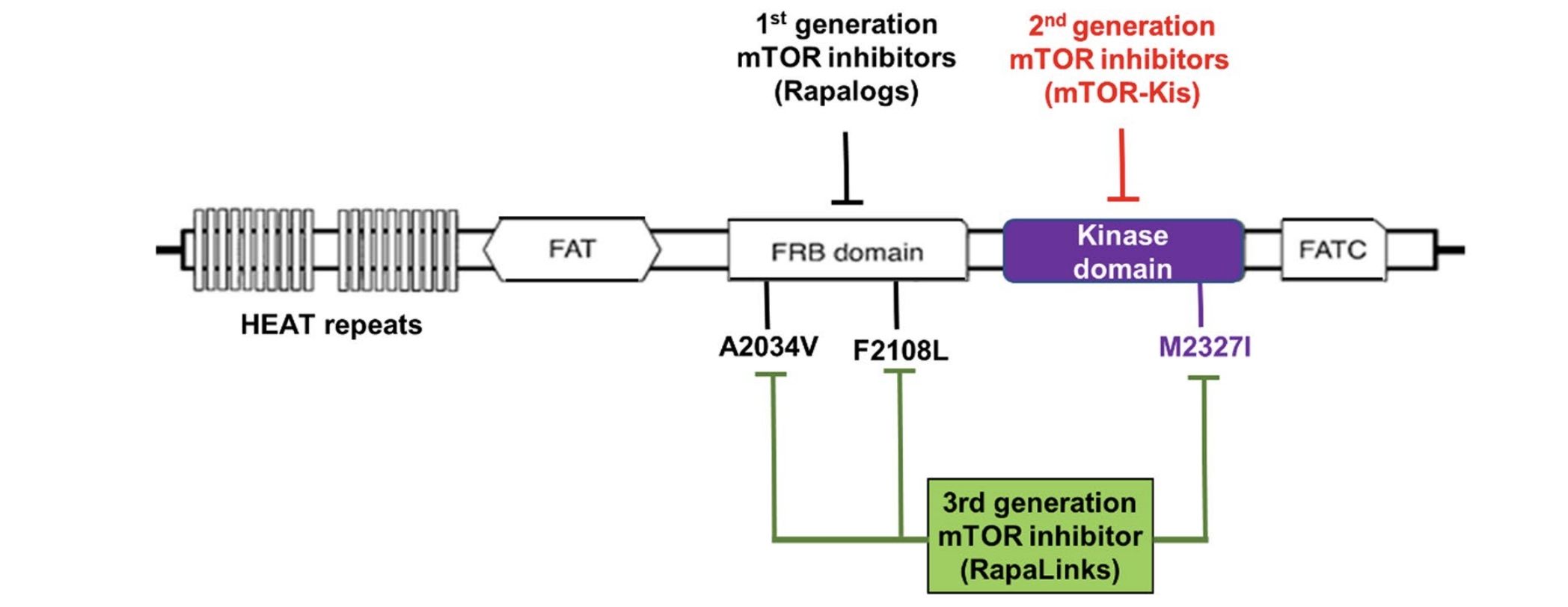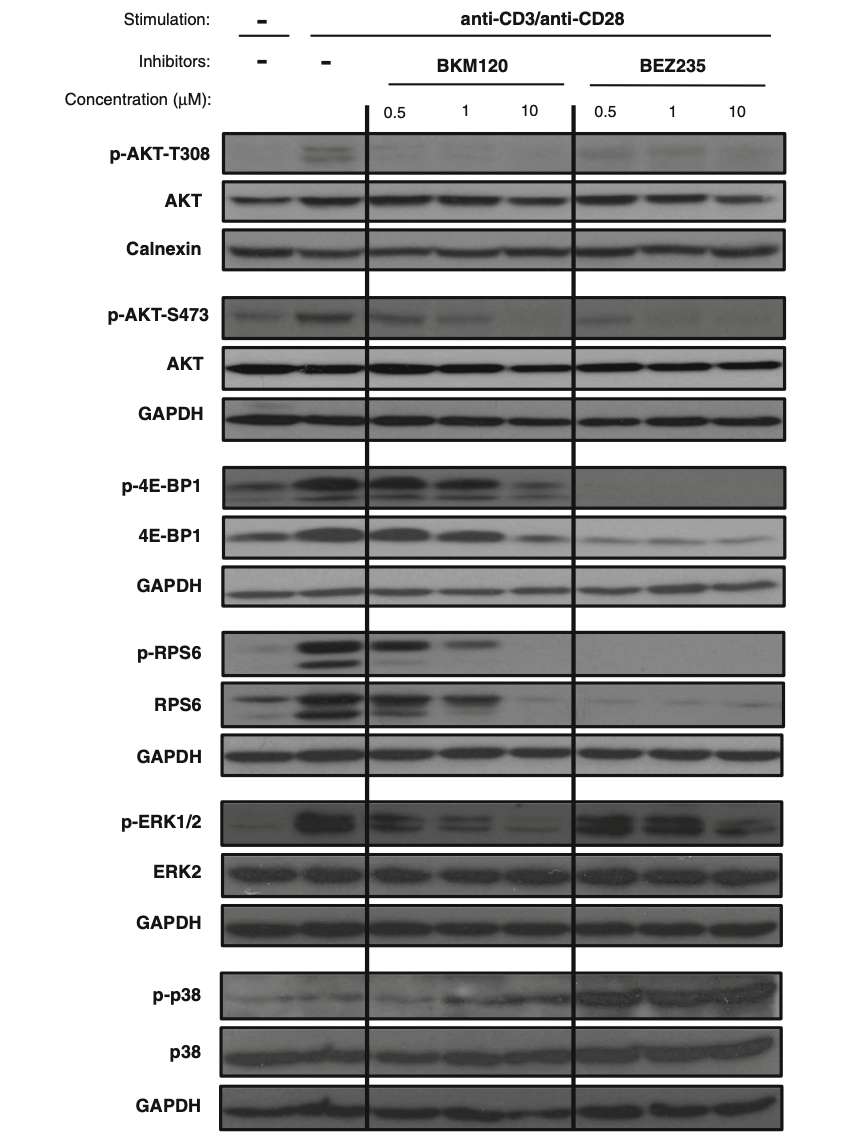GVHD mTOR Inhibitor Development Services
Dysregulation of mTOR (mammalian target of rapamycin) signaling has been associated with complications of mTOR-related diseases, and overactivated mTOR signaling has been observed in both GVHD. Therefore, inhibition of the mTOR signaling pathway can effectively block abnormal signal transduction of various growth factors, thus blocking the occurrence and development of GVHD. Creative Biolabs is committed to the research of novel potent and low-toxicity mammalian target of rapamycin (mTOR) targeting inhibitors.
Introduction
The PI3K/AKT/mTOR pathway is a crucial intracellular signaling cascade associated with key regulators of metabolism, cell growth, proliferation, and survival in vivo. mTOR is a serine/threonine protein kinase downstream of the PI3K/Akt signaling pathway. It plays a pivotal role as an eukaryotic cell signal, coordinating cell growth and metabolism, influencing transcription and protein synthesis, and regulating cell apoptosis and autophagy. Activation of mTOR has been observed in various GVHD-related cellular processes.
Currently, mTOR inhibitors are categorized into three main groups: antibiotic allosteric mTOR inhibitors (first-generation), ATP-competitive mTOR inhibitors (second-generation), and other novel mTOR inhibitors (third-generation). However, these mTOR inhibitors also exhibit several side effects including immunosuppression, hyperlipidemia, and hyperglycemia which have hindered the clinical evaluation for gVHD treatment. Creative Biolabs is a global biotechnology company dedicated to developing and commercializing innovative GVHD drugs and immunotherapies worldwide. We specialize in providing technical cooperation and services for assessing the immunosuppressive activity of GVHD in vitro, researching & discovering mTOR inhibitors, product quality analysis as well as analytical method development & validation.
 Fig.1 Different Types of mTOR Inhibitors.1
Fig.1 Different Types of mTOR Inhibitors.1
Services
In the past decade, there are several new therapeutic approaches, including innovative immunomodulatory drugs and physical therapy.
Creative Biolabs offers an extensive range of mTOR inhibitors that span key research areas such as oncology, GVHD, and metabolism. Furthermore, Creative Biolabs' product portfolio encompasses the entire PI3K-AKT-mTOR signaling pathway. CBL is dedicated to supporting researchers' work and aiding them in achieving significant breakthroughs. We mainly provide the following four aspects of services:
1. Conduct chemical semi-synthesis of mTOR inhibitors and their novel derivatives, and investigate their therapeutic efficacy in treating GVHD;
2. Assist clients in implementing the synthesis of mTOR inhibitors with practical applications, having established a unique chemical semi-synthetic process for drugs with high sample purity;
3. Engage in the cultivation of Streptomyces hygroscopicus for rapamycin production, optimize the fermentation, extraction, and purification processes, provide clients with high-yield and stable production strains and processes, continuously enhance product quality, and reduce production costs;
4. Uncover and isolate new secondary metabolites or purify specific active homologs of mTOR inhibitors from the fermentation broth of different strains to potentially develop new drugs and explore novel applications for these compounds.
 Fig.2 Inhibitors of PI3K/AKT/mTOR And MAPK Pathway of Protein Phosphorylation.2
Fig.2 Inhibitors of PI3K/AKT/mTOR And MAPK Pathway of Protein Phosphorylation.2
Over the past few decades, we have been trying to develop mTOR inhibitors to treat GVHD. Among them, the development and validation technology platform based on small molecule mTOR inhibitors has matured. Moreover, the third generation of mTOR inhibitors has become a research focus in our labs. We have linked rapamycin to an ATP-competitive mTOR inhibitor via a Linker to verify its role in GVHD.
In addition, mTOR has a strong potential in the study of disease processes and treatment. To verify these mechanisms of action may require the use of a large number of cell lines, such as gene knockout cells or overexpressed cells. Creative Biolabs recently released a new series of mTOR signaling pathway-related cell products, covering PRAS40 (AKT1S1), DEPTOR, mLST8, SIN1, DVL1, TSC1, and SGK1.
Creative Biolabs is a leading CRO bio-company dedicated to the discovery, development, and commercialization of mTOR activators and next-generation GVHD therapies. We provide mTOR inhibitor products with well-documented biological activity and extensive global literature references, suitable for high-throughput, high-content screening, GVHD new drug discovery, new drug indication development, and signaling pathway research. Please contact us for timely consultation and collaboration.
References
-
Ali, Eunus S., et al. "Recent advances and limitations of mTOR inhibitors in the treatment of cancer." Cancer Cells International22.1 (2022): 284.
-
Herrero-Sánchez, Mª Carmen, et al. "Targeting of PI3K/AKT/mTOR pathway to inhibit T cell activation and prevent graft-versus-host disease development." Journal of hematology & oncology 9 (2016): 1-14.
For Research Use Only | Not For Clinical Use


 Fig.1 Different Types of mTOR Inhibitors.1
Fig.1 Different Types of mTOR Inhibitors.1
 Fig.2 Inhibitors of PI3K/AKT/mTOR And MAPK Pathway of Protein Phosphorylation.2
Fig.2 Inhibitors of PI3K/AKT/mTOR And MAPK Pathway of Protein Phosphorylation.2
 Download our brochure
Download our brochure